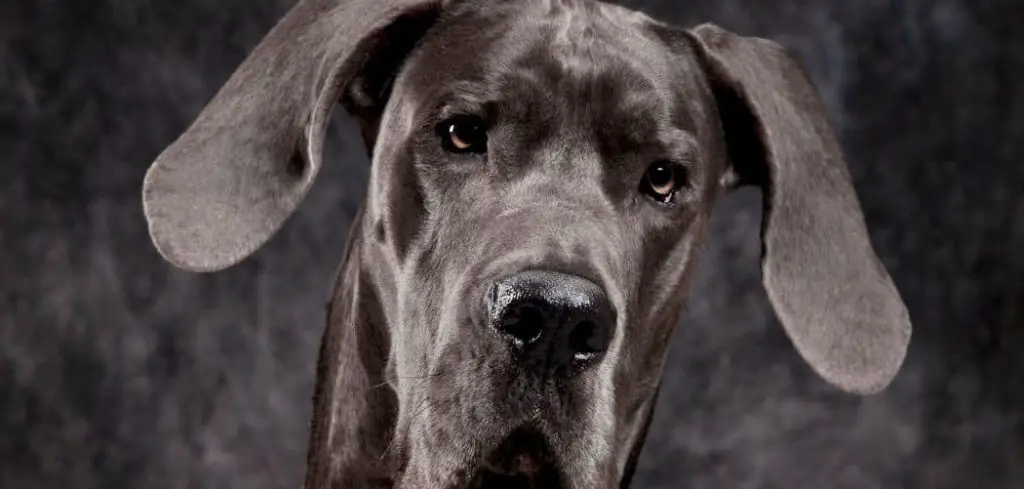Nighttime diarrhea in an old dog can be stressful for both you and your pet. It disrupts sleep, creates messes, and may point to an underlying health issue that needs attention.
Even if your senior dog seems fine during the day, recurring diarrhea at night should not be ignored.
We outline the common causes of diarrhea at night in old dogs, what you can do at home, and when to seek veterinary help.
Old Dog Diarrhea at Night — Why It Happens
Diarrhea at night in old dogs often stems from digestive sensitivities, dietary issues, or underlying medical conditions. Senior dogs may struggle with food intolerances, infections, or age-related organ changes that upset their digestion. Stress, parasites, or medication side effects can also trigger diarrhea that seems worse in the evening or overnight.
Because aging dogs are more vulnerable to dehydration and nutrient loss, nighttime diarrhea should always be taken seriously.

Old Dog Diarrhea at Night: Common Causes
Dietary Indiscretion
Old dogs sometimes experience nighttime diarrhea after eating something unusual or unsuitable. This could include table scraps, spoiled food, or items scavenged outside.
Because digestion slows with age, symptoms may not appear until hours later, often during the night.
You may notice urgency, restlessness, and accidents that seem sudden. While mild cases may resolve quickly, repeated episodes can weaken an older dog.
Read more: Old Dog Diarrhea Only at Night (Why it happens and what to do)
Food Intolerances or Allergies
As dogs age, their digestive system can become less tolerant of certain proteins, grains, or additives.
Food sensitivities may cause loose stools that appear overnight after meals. Signs may include chronic gas, bloating, or soft stool that is worse at specific times.
Left unaddressed, intolerances can cause long-term gut irritation and weight loss.
Infections and Parasites
Bacterial infections, viral illnesses, or intestinal parasites can cause diarrhea at any time, but symptoms may worsen at night when the digestive tract is most active.
Parasites such as giardia or whipworms are especially common in older dogs with weaker immune defenses.
You might notice mucus in the stool, foul odor, or increased frequency. Because infections can spread or become severe, veterinary care is important.
Inflammatory Bowel Disease (IBD)
IBD is a chronic condition in which the intestines become inflamed and unable to absorb nutrients properly.
In old dogs, IBD often causes intermittent diarrhea that may flare up overnight. Other signs include weight loss, vomiting, and reduced appetite.
Without management, IBD can lead to malnutrition and ongoing discomfort, making it a serious cause of nighttime diarrhea.
Organ Disease
Liver disease, kidney disease, and pancreatic disorders can all lead to digestive upset and diarrhea in senior dogs.
These conditions interfere with the body’s ability to process nutrients, filter toxins, or produce digestive enzymes.
Often, diarrhea is just one symptom among others like increased thirst, lethargy, or vomiting. Because these illnesses progress over time, nighttime diarrhea may be an early red flag.
Medication Side Effects
Many older dogs take medications for arthritis, heart disease, or other chronic issues.
Some of these drugs, particularly antibiotics or anti-inflammatories, can irritate the gut and trigger diarrhea.
You may notice loose stools beginning shortly after a new prescription is started. If the diarrhea worsens at night, it may be due to timing of medication doses or evening meals.
What to Do If Your Old Dog Has Diarrhea at Night
At home, the first step is to make your dog comfortable and ensure they stay hydrated. Offer fresh water frequently, as senior dogs are at higher risk of dehydration.
Consider feeding a bland diet of plain boiled chicken and white rice for a day or two, which can help settle the stomach and firm up stools. Transition back to regular food slowly to avoid relapse.
Try feeding smaller, more frequent meals earlier in the day so digestion is steadier by nighttime. Avoid late-night snacks or rich foods that may trigger diarrhea overnight.
If your dog is on medication, speak with your vet before making any changes, but note whether the timing of doses seems linked to nighttime digestive upset.
Always monitor your old dog’s stool for changes in consistency, color, or frequency. Keeping a simple log can help your vet pinpoint patterns and causes more effectively.
When to Call or Visit Your Vet
If your old dog’s nighttime diarrhea lasts more than a couple of days, veterinary evaluation is recommended. Persistent diarrhea can cause dehydration, electrolyte imbalance, and weight loss in senior dogs.
Seek immediate care if you notice blood in the stool, black or tarry stools, vomiting, lethargy, or refusal to eat or drink. These can indicate a serious underlying illness.
A vet visit is also crucial if your dog has existing health conditions like kidney disease, diabetes, or heart problems, as diarrhea can complicate their care.
Even if your dog seems fine during the day, recurring nighttime diarrhea is not normal and deserves professional attention to protect their long-term health.
Related: Old Dog Diarrhea (Causes and when to worry)
Key Takeaway
Nighttime diarrhea in an old dog can result from dietary issues, food intolerances, infections, chronic illness, or medication side effects.
While some cases are mild, ongoing diarrhea should never be dismissed in senior dogs. Providing hydration, offering a bland diet, and adjusting feeding routines may help at home, but veterinary guidance is often needed to prevent complications.
With prompt care and the right management, your old dog can return to more comfortable nights and better digestive health.
